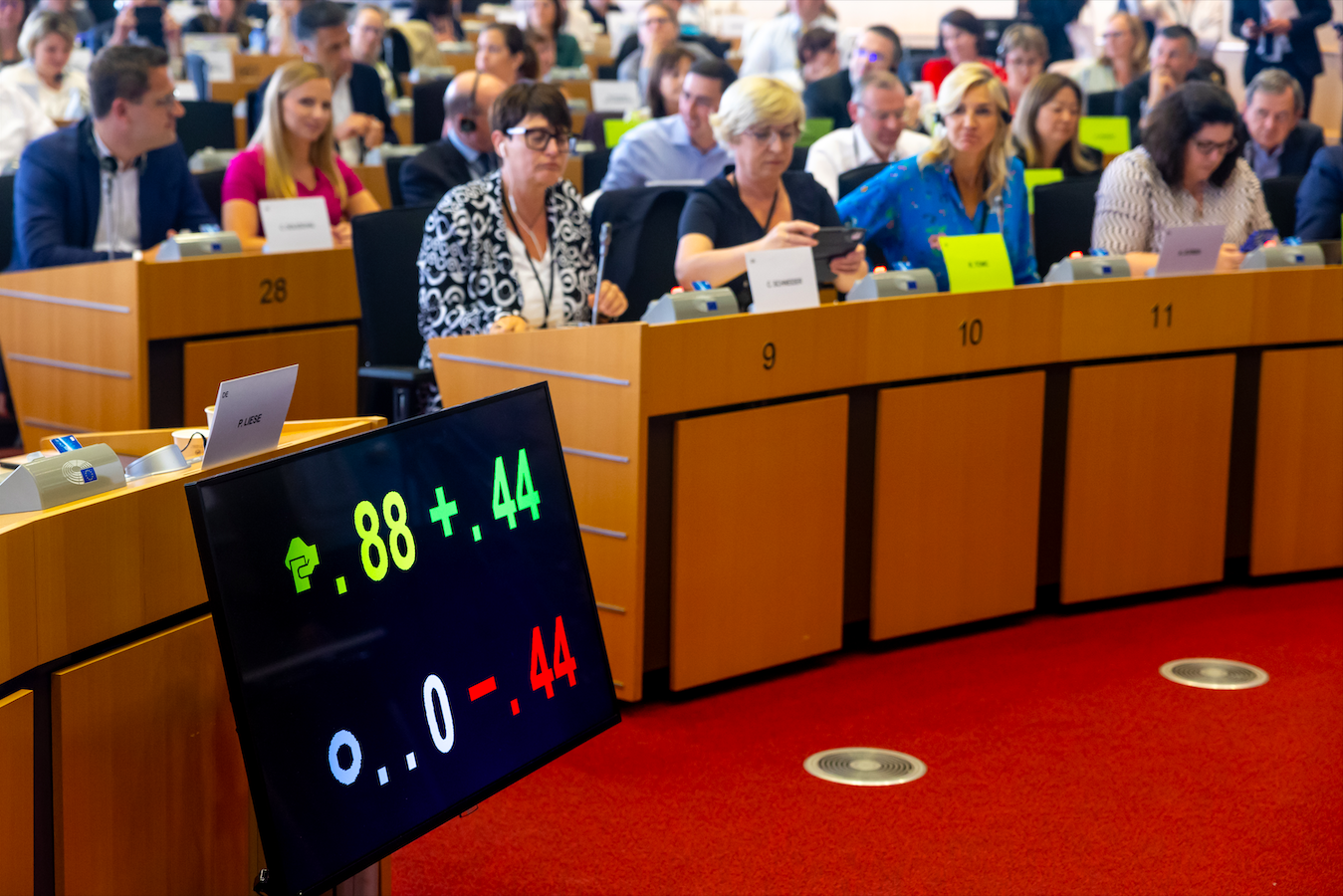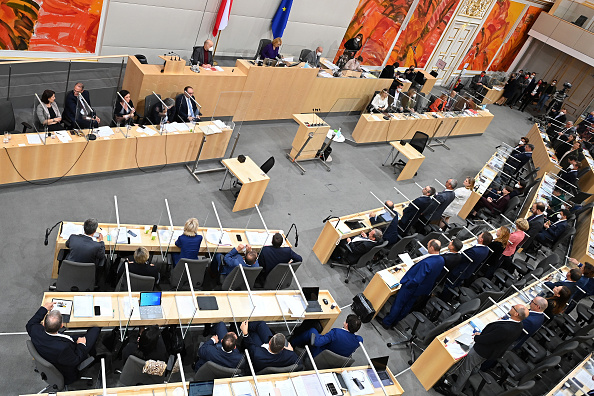Tempers have flared the day before the European Parliament votes on the divisive nature restoration law vote on July 12.
With temperatures hitting 37C on the streets of Strasbourg and two demonstrations taking place right outside the parliamentary plenary session on the proposed legislation, there have been increasing signs of tension.
Perhaps a little ironically, Dutch MEP and European People’s Party member Esther de Lange said: “It’s promises to be a very exciting vote tomorrow,” during a press conference on July 11.
Meanwhile, as she and EPP leader and fellow MEP Manfred Weber were sparring with the media, inside the plenary hall the law’s rapporteur, César Luena of the centre-left S&D Group, said it was a “time to have a tranquil debate on nature”.
During his speech he sniped at the centre-right whose members, he noted, were “a bit thin on the ground”. He also called on them to “not break the cordon sanitaire“, referring to the policy operated by mainstream parties of trying to minimise the influence of the Right in European Union politics.
Commissioner Maroš Šefčovič said he “hoped” the latest discussions had “led to a better understanding and convergence” of different views. At the same time he acknowledged there has been “intense debate” and an “unprecedented mobilisation” in EU politics.
The law being voted on is designed to cut the use of pesticides, artificial fertilisers and other chemicals in farming. It also aims to turn areas of EU land currently being cultivated into nature reserves to boost ecological biodiversity.
While many argue that the law is needed to keep EU agriculture sustainable, others say the measures are too harsh, will hurt the EU’s food production capabilities at a dangerous time, and that the entire proposal is beyond Brussels’ power to implement.
Others feel the whole process has for some time been spiralling away from the original issues the legislation was intended to address.
“Let’s face it, the debate has gotten out of hand,” said MEP and Renew Group chairman Stéphane Séjourné. “It’s a huge mess!”
The centrist party leader placed the blame on two elements. On the one hand he pointed to what he saw as the imperious behaviour of the European Commission and the law’s arch-advocate, EC Vice President Frans Timmermans, asking: “How are you supposed to build a majority from inside your Brussels office?”
On the other hand, Séjourné also cited what he said was political partisanship, particularly within the ranks of Weber’s EPP, which he accused of entering into alliances with “climate deniers”.
“Only the extremes will benefit from this parliamentary polarisation,” he concluded, announcing that the Liberal Renew Group was “working around the clock” to secure a majority in favour of the law in the vote tomorrow.
Recriminations from the Left targeted the EPP and its cooperation with more Conservative and nationalist groups.
Iratxe Garcia Perez, President of the S&D Group, accused Weber and his party of “grubbing for votes”, and said that they were engaged in “a strategy of lies, and of denying science”.
She claimed that, in tandem with the parties from the right-wing ECR and ID Groups, the EPP was entering the “reactionary far-right” mode of “attacking LGBT, women, and now nature”.
Speaking for the nationalist ID Group, French National Rally MEP Aurélia Beigneux accused the proposed law’s supporters of “sacrificing our farmers on the altar of your green ideology”. She railed that MEPs who had demanded an impact assessment of the planned legislation had been “totally ignored” by the main EU institutions.
In addition, she said she felt the regulations would overstep their remit into areas that were purely matters for individual national governments, such as forestry.
With criticism rife and recriminations abounding, and with no compromise forthcoming by the end of todays talks, MEPs appear happy to let the situation simmer until the crucial head-to-head in tomorrow’s knife-edge vote.





